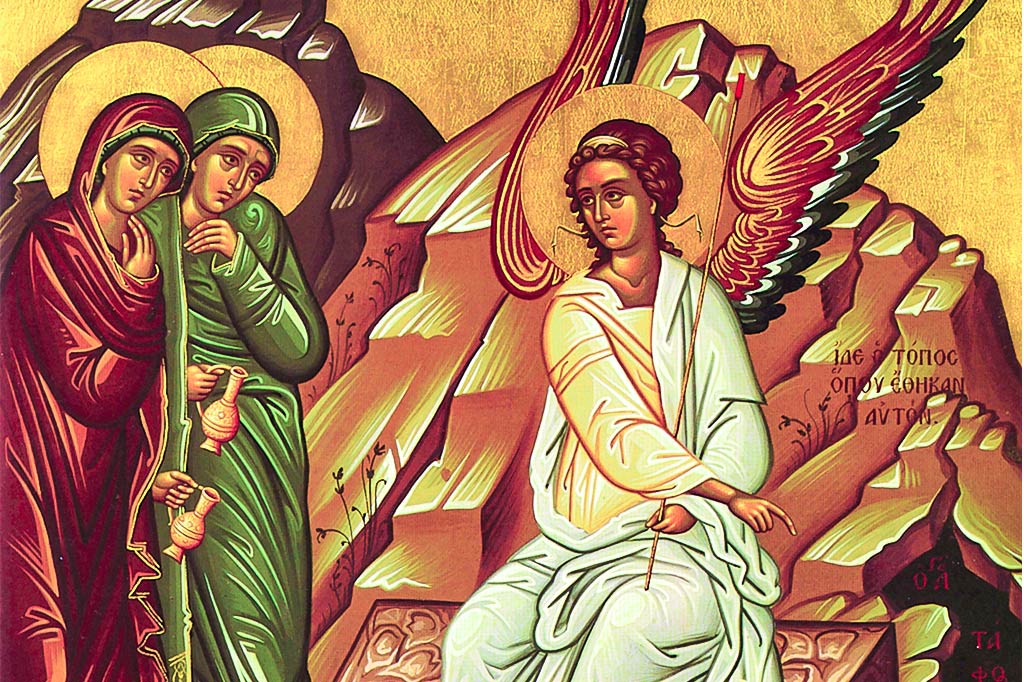Two weeks ago we celebrated Pascha, the holy resurrection from the dead of our Lord and Savior Jesus. Why do the myrrh-bearers factor into our theological formation?
Recall that Jesus encounters myrrh twice: at the beginning and the end of his life. The gifts of the Wise Men were of gold, frankincense and myrrh. Myrrh is an aromatic oil that was used in burial to cover the stench of death. In the Middle East the oder of death is unforgettable in the heat. This practical gift, while thoughtful, also had a deeper, mystical meaning for Jesus and for us who follow him: the wise men foretold that the death of Jesus would be his glory, as we see especially in the Gospel of John. Theologians will say “It was his glory because his death on the Cross was the revealing manifestation of God’s infinite love for his creation. By death Jesus showed forth the victory of love, “trampling upon death by death and granting life to those in the graves” (DP).
One of the troparia sung today is dedicated Joseph of Arimathea, a secret follower of Jesus who becomes a caretaker of the mortal remains by taking the body off the cross, wrapping it in pure linen, anointing the body with spices (myrrh) and laying the Lord in a new tomb. Joseph’s mercy is remarkable because he brings us into deeper focus as to who Jesus was and who he is to become: The Christ —the Messiah (the Anointed One).
First Joseph and now the women. The anxiety of getting the body Jesus attended to fast due to political concerns meant that Jesus burial process was completed by Joseph. The women’s intentions were interrupted by an angel saying that on the third day, Sunday, “He is not here, he is risen.” The Myrrh-bearers have their mission changed from anointing to announcing the resurrection.
Why do the myrrh-bearers factor into our theological formation?
As so often happens in the Gospels: what was expected on the human level is changed by the Divine. The paradox is beautiful. Women who were not well respected in their own right by men all of a sudden receive the gifts of trust and courage and love to convey THE most important message of all history: He is not here, He has risen from the dead. The women are bears not merely of myrrh but that of the Good News that Death has been killed.
Why do the myrrh-bearers factor into our theological formation?
The apostle and evangelist Mark gives us the key to interpret the facts of Jesus’ preaching with the preaching myrrh-bearers: we must have the courage to complete the women’s task, we must proclaim that Jesus is the Messiah, not by spices and oils, but by our witness to the world and our worship of Jesus Christ —The Messiah!
Let’s connect the dots: Thomas teaches us to why to profess that Jesus is “our Lord and our God.” The Myrrh-bearers teach us to have the intimate love sustained by trust and courage in the face of opposition so that we can keep the great commandment: “If you love me, keep my commandments,” and the commandments are these: love the Lord your God with your whole heart, with your whole mind and with your whole soul,” and “love your neighbor as yourself.”
As the Holy Myrrh-bears, so for us.
